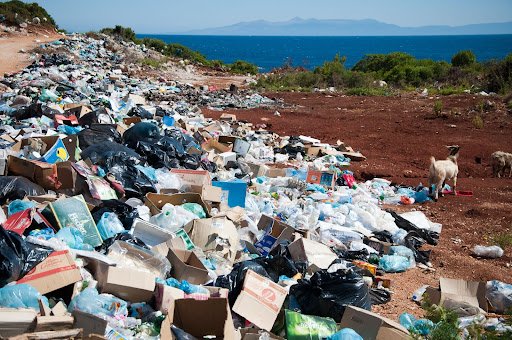Puerto Rico’s waste management struggles are not new, but they’ve recently made headlines following controversial comments by a political campaigner. Standup comedian Tony Hinchcliffe, performing for Donald Trump during his New York campaign, made a tasteless joke, referring to Puerto Rico as a “floating island of garbage.”
For Puerto Ricans, however, there’s little to laugh about. The island produces about 1.3 billion pounds of waste each year, with nearly 85% of its landfills at capacity. Lacking sufficient waste disposal and recycling infrastructure, Puerto Rico faces a worsening crisis. Much of the trash ends up littered across communities, contributing to environmental and health issues.

The situation is compounded by Puerto Rico’s economic instability, as the island imports most goods—along with their packaging—only for much of it to end up in landfills. Limited recycling programs further prevent meaningful waste reduction. Natural disasters like hurricanes also add to the waste overflow by bringing more debris into already overburdened landfills.
Hinchcliffe’s joke, while offensive, touched on a harsh reality. Puerto Ricans, along with celebrities like Bad Bunny and Ricky Martin, have responded by speaking out on social media about the island’s struggles with waste, poverty, infrastructure, and environmental damage.
Some initiatives are underway to address the crisis, with local municipalities and private entities promoting recycling and investing in renewable energy. Yet, progress remains slow due to insufficient funding and the political complexities surrounding Puerto Rico’s status. Many environmental policies rely on U.S. federal aid, complicating the path to effective solutions.
Despite the hurt caused by the joke, it has underscored the urgent need for reform. Puerto Ricans continue advocating for better resources and innovative strategies to tackle the waste crisis. With greater awareness, there’s hope for policies that could support a more sustainable future for the island.
Tourism also plays a major role, as millions of visitors each year add to the waste burden, especially in plastic and packaging waste. While tourism boosts the local economy, it intensifies the island’s environmental challenges, pressing the need for rapid and sustainable waste management solutions.
Puerto Rico urgently needs stronger recycling initiatives, waste reduction programs, and investment in modern facilities. To tackle this issue, the island will need support from local and international agencies, as well as active citizen involvement. Without this, Puerto Rico’s environmental future remains uncertain.